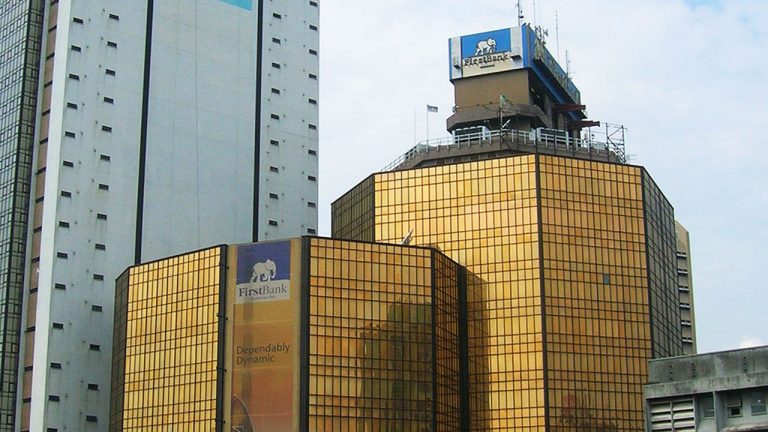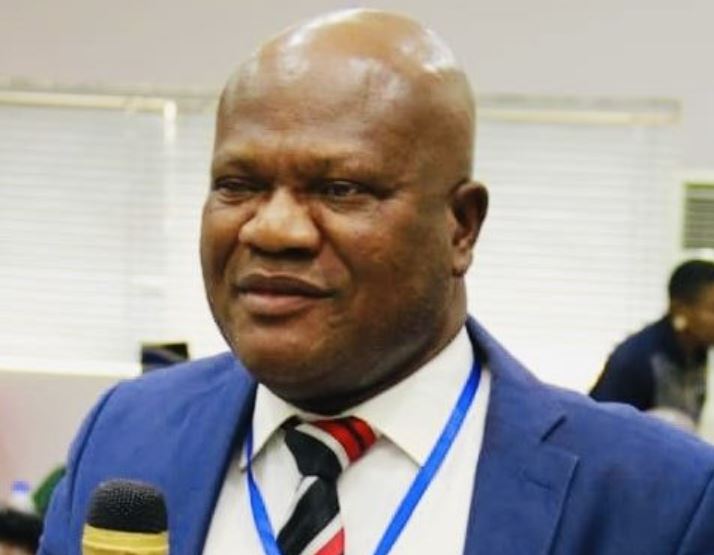Business
FG Grants First Oil Exploration Licence Under PIA
Published
2 years agoon
By
Editor
The Federal Government has granted a Petroleum Exploration Licence to TGS-PetroData Offshore Services Limited, which is the first of such licence to be issued under the Petroleum Industry Act 2021.
It said the licence, which was granted by the Nigerian Upstream Petroleum Commission, was in compliance with the provisions of Section 71 (1) – (10) of the PIA.
It also announced, on Thursday, that Nigeria’s oil drilling rigs had increased from 10 in 2022, to 31 in August this year, a development that gave rise to increased crude oil output in September, as exclusively reported by The PUNCH on Thursday.
READ ALSO: Naira Depreciates Further In Parallel Market
The Chief Executive, NUPRC, Gbenga Komolafe, said the Petroleum Exploration Licence was under the licence agreement which the commission and TGS-PD executed for a geophysical survey project.
He said in a statement he personally signed that the licence was for the acquisition of about 56,000 square kilometres of 3D seismic and gravity data, adding that the development would attract investment in the oil and gas sector.
“Without data, reserves cannot be auctioned for development and revenue attraction. Data acquired under the PEL is not proprietary but speculative/multi-client survey data acquired in partnership with the NUPRC.
READ ALSO: CBN Lifts Forex Ban On 43 Items, To Intervene In FX Market
“The licence therefore authorises TGS-PetroData Offshore to carry out non-exclusive petroleum exploration operations on a multi-client basis within the licensed area and permits the use of the acquired 3D seismic and gravity data by exploration companies,” Komolafe stated.
On the rise in Nigeria’s rigs count, the NUPRC boss noted that in the years preceding the enactment of the PIA, investments in the Nigerian oil and gas industry declined mostly due to regulatory uncertainty, de-funding of fossil fuel development occasioned by energy transition and the global call for decarbonisation.
You may like


Ondo NMA Rejects FG’s Plan To Review Doctors’ Allowances


FG Suspends Online Application Recruitment Into Paramilitary Services


FG Declares Public Holiday To Honour Buhari


FG Secures 44 Fresh Convictions On Terrorism Financing


FG Launches Phase 7 Of Kainji Mass Trials Of Terrorist Suspects


FG Launches Passport Front Office For Senior Public Officials
Business
First Bank: Controversy Trails Multi-billion Naira Shares Deal
Published
13 hours agoon
July 18, 2025By
Editor
There seems to be uncertainty around the share sales and purchase deal between Oba Otudeko, Hassan Odukale on one hand and Femi Otedola on the other in First HoldCo, the parent company of First Bank.
The deal delivered an unprecedented quantum of the financial group’s shares to Otedola, the current Group Chairman of First Holdco, from the shareholdings of Odukale and Otudeko, the two immediate past chairmen of the group.
Also the deal ramped up Otedola’s holdings in the Group to an unprecedented level of 40%, the largest in the history of the bank and also largest single shareholdings amongst the tier-1 banks in Nigeria.
READ ALSO:Court Nullifies Shell, AFC, Others’ ICC Arbitration Against Aiteo
However, when Vanguard contacted the Nigerian Exchange Limited, the Spokesperson, Clifford Akpolo, said: ”I am not aware of these transactions as the NGX Reg has not notified the NGX.”
The NGX trading rules required that a sale or purchase of shares up to 5% must be notified to the NGX Reg. The deal covered about 25% of the bank’s total shareholding.
Similarly, First Bank’ s spokesperson, Mr. Ismail Omamegbe, did not respond to a text message sent to him, nor responded to calls in respect of the deal.
But sources in the bank indicated that the deal was executed off-trading floor and in connection with the long-drawn battle between the current board of the bank group and the two former board chairs who opted to surrender their shares for the bank to drop legal proceedings against them.
READ ALSO:FirstBank Changes Names Of UK, Africa Subsidiaries
The deal, executed through 17 negotiated trades at ?31 per share, involved the transfer of 10.43 billion units of FBN Holdings shares and is estimated to be worth over ?324 billion.
The acquisition, confirmed by trading data and capital market sources, marks a turning point in the ownership structure of one of Nigeria’s oldest and most prominent financial institutions.
The buyer in all 17 deals was First Securities Ltd, while the sellers included CardinalStone Securities, Meristem Stockbrokers, Renaissance Capital, Regency Asset Management, Stanbic IBTC Stockbrokers, United Capital Securities, and First Securities Ltd (acting as both buyer and seller in select trades).
(VANGUARD)
Business
South-South Contributed Over 21% Nigeria’s GDP In 2024 – Banker’s institute
Published
1 day agoon
July 17, 2025By
Editor
The President of the Chartered Institute of Bankers of Nigeria, Prof. Pius Olanrewaju, has stated that the South-South region contributed N34 trillion to the country’s economy in 2024.
He made the remark at the South-South Zonal Banking and Finance Conference in Calabar on Thursday.
He spoke on the theme, ‘Building An Inclusive South-South: Economic Diversification as a Catalyst For Development.’
Olanrewaju, who quoted the data from the Cable Data Index, said the feat was more than 21 per cent of Nigeria’s real Gross Domestic Product.
The president described the growth as “impressive,” saying that it was not driven by oil alone but significant expansions in trade, services, and the creative industries.
READ ALSO:Bank Fraud: Court Orders Forfeiture Of Cash, Properties
According to him, to fully harness this potential, coordinated financial, technological, and policy support is essential.
“As we work to reposition the South-South for broad-based prosperity, the financial system must play a central role, not merely as a source of capital, but as a catalyst for innovation, ideas incubation, and inclusive economic growth.
“This conference, therefore, provides a strategic opportunity for stakeholders to reimagine the South-South economy, not merely as a resource belt, but as a region of diverse capabilities and resilient enterprises,” he said.
Olanrewaju added that Nigeria must move beyond old models and chart a new course for the development of the South-South region, where financial institutions and stakeholders collaborate to diversify the economy for shared prosperity.
He, however, commended Governor Bassey Otu for his pledge of land for CIBN Secretariat in Cross River and being the first sitting governor to willingly undergo and complete the Chartered Bankers Programme.
READ ALSO:Bank Employee Rejects $7000 Bribe To Compromise Company’s System
On his part, Otu said that the conference discussion on the economic diversification in the South-South region was timely against the backdrop of global trade and economic volatility that was affecting the nation’s economy.
Represented by his deputy, Mr Peter Odey, Otu said the South-South region must now act with urgency to diversify its economy while leveraging its shared natural endowment in agriculture and extractive resources.
“This conference must help develop tailored financial solutions that reflect the unique strengths and realities of states like Cross River in the south-south.
“Diversification should be evidence-based and must be backed not just by financial advice but project-focused financing and real investment support,” he stated.
He said that Cross River had taken the bold step to invest in its agricultural sector by launching an agro-processing hub.
READ ALSO:Africa Loses $7bn Annually On Medical Tourism – Afreximbank
Otu further said that the state had invested in aviation by acquiring more aircraft for Cally Air, constructing the Bakassi Deep Seaport and injecting N18 billion in its tourism sector.
Similarly, the Cross River Branch Controller of the Central Bank of Nigeria, Mr Tolefe Jibunoh, said that the region was blessed with natural resources, cultural diversity and immense human potential.
Jibunoh, who was represented by Head, Currency Control Office, CBN, Calabar, Mr Segun Shittu, noted that strategic diversification could unlock unprecedented opportunities for growth in the region.
He added that the CBN remained steadfast in maintaining monetary possibilities and promoting a sound financial system as a catalyst for sustainable economic development for the benefit of all.
NAN

The naira today appreciated to N1,545 per dollar in the parallel market from N1,550 per dollar last weekend.
Likewise, the Naira appreciated to N1,528.65 per dollar in the Nigerian Foreign Exchange Market (NFEM).
Data published by the Central Bank of Nigeria, CBN, showed that the exchange rate for the naira fell to N1,528.65 per dollar from N1,532 per dollar last week Friday, indicating N3.35 appreciation for the naira.
READ ALSO:Naira Abuse: Don’t Condemn Tompolo Over Mere Allegation, Says EFCC Boss
Consequently, the margin between the parallel market and NFEM rate narrowed to N16.35 per dollar from N18 per dollar last weekend.
- [OPINION] Buhari: The Good, t The Bad, And The Terrible
- One Year, Big Impact: Otuaro’s Silent Revolution in the Niger Delta
- More Trouble At Benin GSM Village As Igbineweka Warns Ojiezele To Stop Parading Himself As Chairman
- ‘His Security Is Not Guaranteed,’ Okpehbolo Warns Obi Not To Come To Edo Without Informing Him
- US Tech CEO Caught Cheating With HR At Coldplay Concert
- Why UNIMAID Was Renamed After Buhari – Education Ministry
- Russian Strikes Kill Six In Ukraine
- Petrol Tanker Explodes In Ibadan
- Gospel Singer, Eight Others Jailed For Internet Fraud In Kwara
- PDP Reacts To Atiku’s Resignation
About Us
Trending

 Politics1 day ago
Politics1 day agoBREAKING: Edo 2024 PDP Campaign DG Resigns From Party, Gives Reason

 News4 days ago
News4 days ago‘We Were In The Same Hospital,’ Abdulsalami Recounts Buhari’s Final Moments

 News3 days ago
News3 days agoBuhari Shouted Jesus Christ Of Nazareth, I Asked Him Why – Bakare

 Sports4 days ago
Sports4 days agoNo Messi Or Ronaldo: Trump Names His Greatest Footballer Of All Time

 News2 days ago
News2 days agoCourt Orders Final Forfeiture Of N335m, Hospital, Five Filling Stations To FG

 News3 days ago
News3 days ago[OPINION] BUHARI: The Man Who Missed Redemption

 News3 days ago
News3 days agoVIDEO/PHOTOS: Moment Buhari’s Remains Arrived In Nigeria

 Politics3 days ago
Politics3 days agoWhy Okpebholo Should Not Probe Obaseki – Wike

 Headline5 days ago
Headline5 days agoTwo Nigerians Make List Of America’s Richest Immigrants In 2025

 Entertainment5 days ago
Entertainment5 days agoVIDEO: Tems Performs ‘Love Me Jeje’ At Club World Cup Halftime Show































